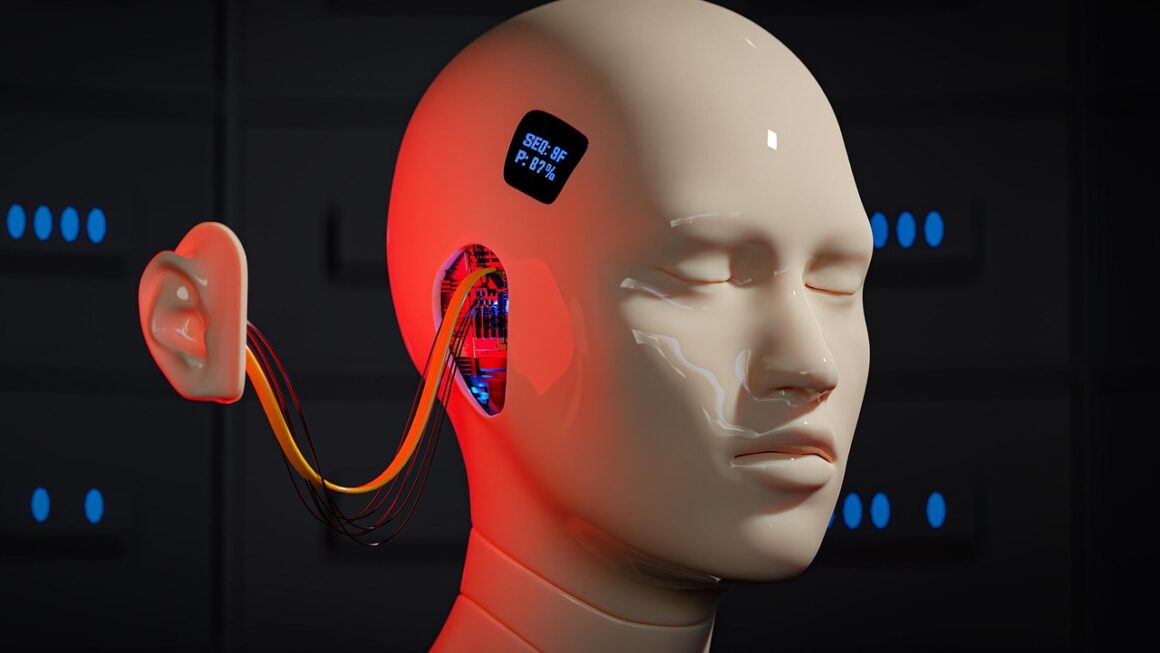The business landscape is undergoing a seismic shift, driven by the relentless advancement of Artificial Intelligence (AI). What was once confined to the realm of science fiction is now a tangible force reshaping industries, optimizing processes, and creating unprecedented opportunities for growth. This transformative technology is no longer a futuristic concept; it’s a present-day reality, and businesses that embrace AI are positioning themselves for a competitive edge in an increasingly data-driven world.
Understanding AI’s Role in Modern Business
Defining Artificial Intelligence for Business
Artificial Intelligence in a business context refers to the use of computer systems to perform tasks that typically require human intelligence. This encompasses a broad range of technologies, including:
- Machine Learning (ML): Algorithms that allow systems to learn from data without explicit programming.
- Natural Language Processing (NLP): Enables computers to understand, interpret, and generate human language.
- Computer Vision: Allows systems to “see” and interpret images, videos, and other visual data.
- Robotics: Integrating AI with physical robots to automate tasks.
Essentially, AI seeks to automate and augment human capabilities to improve efficiency, accuracy, and decision-making across various business functions.
The Benefits of AI Adoption
Implementing AI solutions can yield significant advantages for businesses of all sizes:
- Increased Efficiency: Automate repetitive tasks, freeing up human employees for more strategic activities. For example, AI-powered chatbots can handle routine customer inquiries, allowing customer service representatives to focus on complex issues.
- Improved Decision-Making: Analyze vast amounts of data to identify trends, patterns, and insights that would be impossible for humans to detect. This leads to more informed and data-driven decisions.
- Enhanced Customer Experience: Personalize customer interactions, predict customer needs, and provide faster and more efficient service. Recommendation engines, for instance, use AI to suggest products or services based on individual customer preferences.
- Reduced Costs: Optimize processes, minimize errors, and improve resource allocation, ultimately leading to cost savings. Predictive maintenance, powered by AI, can anticipate equipment failures, reducing downtime and repair costs.
- Enhanced Innovation: Identify new opportunities and develop innovative products and services based on data-driven insights. AI can accelerate the research and development process, leading to faster time-to-market.
Practical Applications of AI Across Business Functions
AI in Marketing and Sales
AI is revolutionizing marketing and sales strategies, enabling businesses to target the right customers with the right message at the right time.
- Personalized Marketing: AI algorithms analyze customer data to create highly targeted marketing campaigns. For example, an e-commerce business can use AI to personalize product recommendations and email campaigns based on individual browsing history and purchase behavior.
- Lead Scoring and Generation: AI can identify and qualify potential leads based on their likelihood of conversion. This allows sales teams to focus their efforts on the most promising prospects.
- Chatbots and Virtual Assistants: AI-powered chatbots provide instant customer support and answer frequently asked questions, improving customer satisfaction and freeing up human agents.
- Sentiment Analysis: AI can analyze customer feedback from social media, reviews, and surveys to gauge customer sentiment and identify areas for improvement.
- Actionable Takeaway: Explore AI-powered marketing automation platforms to personalize your marketing campaigns and improve lead generation.
AI in Customer Service
AI is transforming customer service by providing faster, more efficient, and more personalized support.
- AI-Powered Chatbots: These can handle a large volume of customer inquiries 24/7, resolving simple issues instantly and escalating complex cases to human agents.
- Sentiment Analysis for Customer Support: AI can analyze the tone and content of customer interactions to identify frustrated or unhappy customers and prioritize their cases.
- Personalized Recommendations: AI can provide personalized recommendations for products, services, and solutions based on customer needs and past interactions.
- Automated Ticket Routing: AI can automatically route customer support tickets to the appropriate agents based on the nature of the issue and the agent’s expertise.
- Actionable Takeaway: Implement a chatbot on your website or mobile app to provide instant customer support and reduce response times.
AI in Operations and Manufacturing
AI is driving significant improvements in operational efficiency and productivity in various industries.
- Predictive Maintenance: AI algorithms analyze data from sensors and other sources to predict equipment failures and schedule maintenance proactively, minimizing downtime and reducing costs.
- Quality Control: AI-powered computer vision systems can inspect products for defects with greater accuracy and speed than human inspectors.
- Supply Chain Optimization: AI can optimize inventory management, logistics, and transportation to reduce costs, improve efficiency, and minimize disruptions.
- Robotics and Automation: AI-powered robots can automate repetitive and dangerous tasks, improving safety and productivity in manufacturing and other industries.
- Example: A manufacturing plant uses AI-powered cameras to inspect finished products for defects, significantly reducing the number of faulty items that reach customers.
AI in Human Resources
AI is streamlining HR processes, improving recruitment, and enhancing employee engagement.
- Automated Resume Screening: AI can quickly scan and analyze resumes to identify qualified candidates based on specific skills and experience.
- AI-Powered Chatbots for HR: Chatbots can answer employee questions about benefits, policies, and other HR-related topics, freeing up HR staff for more strategic tasks.
- Performance Management: AI can analyze employee performance data to identify areas for improvement and provide personalized feedback.
- Employee Engagement Analysis: AI can analyze employee feedback from surveys and other sources to identify areas where employee engagement can be improved.
- Actionable Takeaway: Use AI-powered tools to automate the resume screening process and identify top talent more efficiently.
Overcoming Challenges in AI Implementation
Data Quality and Availability
AI algorithms require large amounts of high-quality data to train effectively. Businesses need to ensure they have access to sufficient and reliable data.
- Clean and organized data is essential for accurate AI model training.
- Consider data augmentation techniques to increase the size of your dataset.
- Address biases in your data to avoid unfair or discriminatory outcomes.
Skill Gaps and Training
Implementing and managing AI solutions requires specialized skills. Businesses may need to invest in training or hire experts in AI, data science, and related fields.
- Provide training opportunities for employees to develop AI-related skills.
- Consider partnering with universities or research institutions for access to expertise.
- Clearly define roles and responsibilities for AI projects.
Ethical Considerations
AI raises important ethical considerations, such as bias, privacy, and job displacement. Businesses need to address these concerns proactively.
- Develop ethical guidelines for AI development and deployment.
- Ensure transparency and explainability in AI decision-making.
- Address concerns about job displacement by providing retraining opportunities.
Conclusion
AI is no longer a futuristic concept but a powerful tool that can transform businesses across industries. By understanding the potential applications of AI and addressing the associated challenges, companies can harness the power of this technology to improve efficiency, enhance customer experiences, and gain a competitive edge in today’s rapidly evolving business landscape. Embracing AI is not just about adopting new technology; it’s about fundamentally rethinking how businesses operate and create value. The future of business is intelligent, and those who embrace AI will be best positioned to thrive in the years to come.




